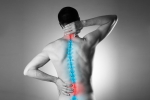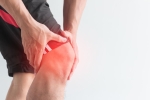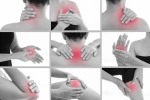Home »
Blog » Health and Wellness
| Stem Cell, PRP, Acupuncture in Queens & Long Island, New York
Health And Wellness | Stem Cell, PRP, Acupuncture in Queens & Long Island, New York
Start the Day with Gentle Activity - Slow, gentle activity in the morning can help wake up tired muscles and stiff joints. Just take it easy on your spine, says Raj Rao, MD, professor of Orthopedic Surgery and Neurosurgery at the Medical College of Wisconsin. Deep, relaxed breathing when you wake up may also be helpful. But certain moves aren't recommended if you have back pain -- ask your health care provider what's best for you.
Read more
It seems you can't watch the evening news or pass by a strip mall without someone trying to sell you a mattress. The seemingly limitless options for choosing a mattress can be overwhelming. This is even truer if you experience back or neck pain—choosing the right or wrong mattress can make the difference between spending the day feeling good or in pain. These 12 tips can't guarantee you will end up with the perfect mattress (since everyone's mattress needs are different), but they can help you make an educated choice.
Read more
Who's at Risk for Low Back Pain? - Most people experience back pain first when they're in their 30s. The odds of additional attacks increase with age. Other reasons your low back may hurt include: Being overweight, Being sedentary, Lifting heavy stuff on the job, Diagnosing Low Back Pain. To help your doctor diagnose the source of low back pain, be specific in describing the type of pain, when it started, related symptoms, and any history of chronic conditions. Your doctor will probably not need to order X-rays, CT or MRI scans before starting treatment.
Read more
When you are experiencing low back pain, your first instinct may be to crawl into bed. Until a few decades ago, your doctor probably would have told you to do exactly that. But the tide has turned on our understanding of what is best for tackling back pain, and now the consensus is this: When you have back pain, you should limit or avoid bed rest.
Read more
Heart Attack - Arm or shoulder pain can be a sign, especially if you also have pain or pressure in the center of your chest and shortness of breath. A heart attack can be sudden, but sometimes it’s gradual. The feeling might last a few minutes, or stop and return. Your stomach, jaw, back, or neck also might hurt. You could also get sick to your stomach, lightheaded, and clammy with sweat. Call 911 if you notice these symptoms.
Read more
If you have lumbar spinal stenosis, you may be wondering if playing golf is a good idea. If you've had a spinal stenosis surgery, you may even wonder if golf is possible. The answer for many is yes, but there are a number of considerations to keep in mind. First, recognize that golfing is not really the best thing for your low back. The golf swing imparts a tremendous amount of stress to your lumbar spine. If you are going to return to golf, be willing to accept that there is some risk of injury to the low back.
Read more
Your neck is made up of vertebrae that extend from the skull to the upper torso. Cervical discs absorb shock between the bones. The bones, ligaments, and muscles of your neck support your head and allow for motion. Any abnormalities, inflammation, or injury can cause neck pain or stiffness. Many people experience neck pain or stiffness occasionally. In many cases, it’s due to poor posture or overuse. Sometimes, neck pain is caused by injury from a fall, contact sports, or whiplash. Most of the time, neck pain isn’t a serious condition and can be relieved within a few days. But in some cases, neck pain can indicate serious injury or illness and require a doctor’s care. If you have neck pain that continues for more than a week, is severe, or is accompanied by other symptoms, seek medical attention immediately.
Read more
Being active is one of the best things you can do for your joints and the rest of your body. But injuries can happen, and they often involve the knees. Some of the most common problems are sprained ligaments, meniscus tears, tendinitis, and runner's knee. If you have an old knee injury that wasn’t properly treated, it may flare up now and then or hurt all the time. Several other things can also cause knee pain, such as: Bursitis: A bursa is a sac that holds a small amount of fluid that’s under the skin above your joint. It helps prevent friction when the joint moves. Overuse falls, or repeated bending and kneeling can irritate the bursa on top of your kneecap. That leads to pain and swelling. Doctors call this prepatellar bursitis. You may also hear it called ''preacher's knee."
Read more
A lumbar herniated disc can create sciatica pain that's often described as a searing, burning, or radiating along the path of the sciatic nerve and down the leg. No single treatment option works for everyone, so it's best to learn about everything available and see what works best for you. Here are 5 tips to help you on your way: 1. Heat can help relieve your muscle spasms...
Read more
Musculoskeletal pain refers to pain in the muscles, bones, ligaments, tendons, and nerves. You can feel this pain in just one area of the body, such as your back. You can also have it throughout your body if you have a widespread condition like fibromyalgia. The pain can range from mild to severe enough to interfere with your day-to-day life. It may start suddenly and be short-lived, which is called acute pain. Pain that lasts for more than 3 to 6 months is called chronic pain.
Read more
Love this Post? Spread the World






















